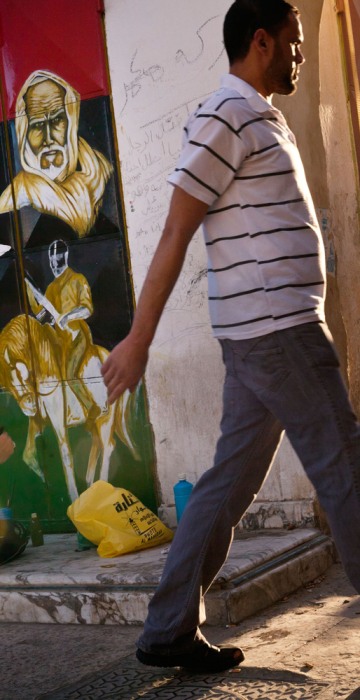
Mideast
Libyans live with 5 months of war

The 5-month-old Libyan rebellion against Col. Moammar Gadhafi's 41-year-rule has turned into the bloodiest of the "Arab Spring" uprisings convulsing the region. Libyans in eastern towns live somewhat peacefully but cannot escape the effects of the war. In Derna, many people claim government abuse and lack of freedom and opportunity once pushed youth toward violent international jihads, but now the trend has changed. Many young Derna men leave to fight on the rebel front or stay in the city in hope of future opportunity.
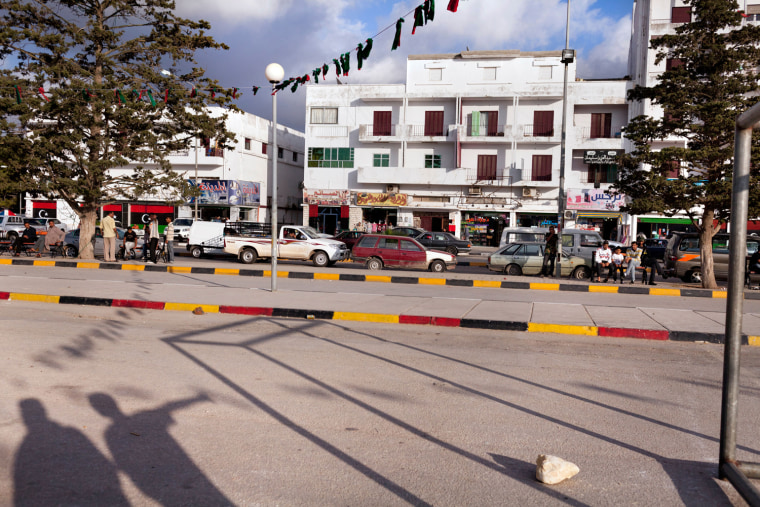
The small town of Beida is one of the first places where fighting broke out in the streets. Today its main square is filled each night with soccer games, music and plays commemorating the revolution.
•Photojournalist David Degner describes why he turned away from the fighting to cover Libya.
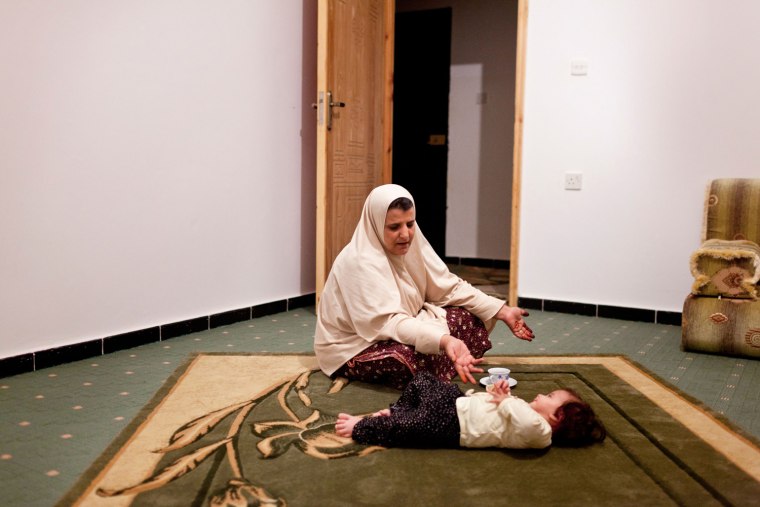
At a house on the edge of Shehat, a family leaves the door open, a common practice as neighbors constantly visit and help each other. Electricity is cut for a few hours every day, water delivery credit has stopped and hard currency has stopped circulating. The former government paid monthly sums to unemployed and underemployed.
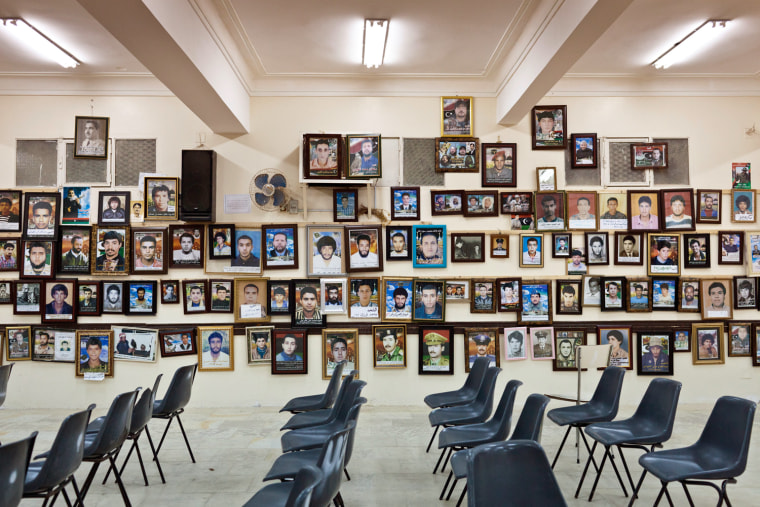
The wall of a community room in Derna's main mosque commemorates locals killed by forces loyal to Libyan leader Moammar Gadhafi's forces throughout the city's long history of rebellion. It includes the photos of political prisoners who died in a prison massacre, soldiers shot for refusing orders, rebels from a 1996 uprising and the youths who died in the past five months in Derna and at the rebel front.
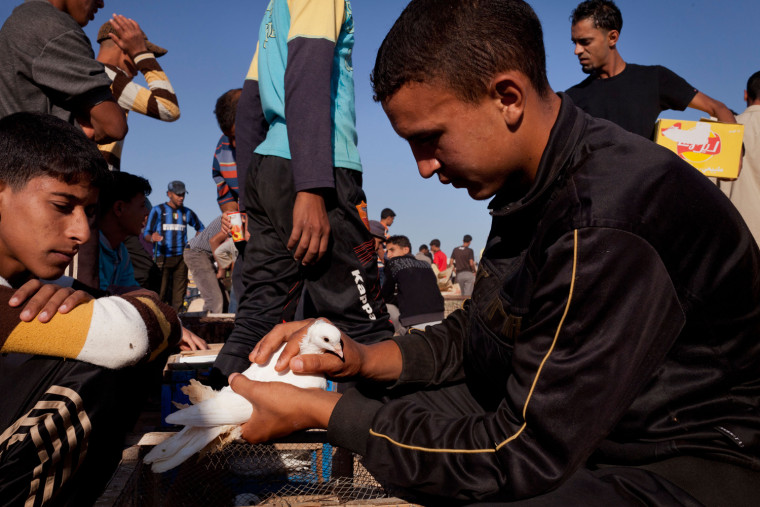
The Friday market in Shehat is divided into sections for livestock, fruits, vegetables, equipment and pigeons. Pigeons are a surprisingly popular hobby with the market, rivaling Cairo's in size, even though the local area is only a small fraction of Cairo's. Many other hobbies such as soccer, music and movies were systematically suppressed by the government out of fear of any personality cult that could rival leader Moammar Gadhafi. Soccer games were announced using just numbers; songs had to include references to Gadhafi, and artists who became too successful were given posts overseas.

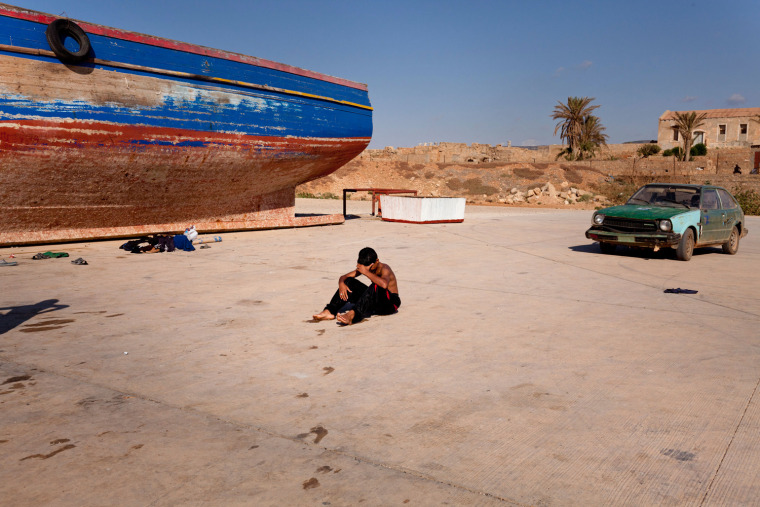



A Derna conference for women's issues in the future Libyan constitution is one of the few places to hear dissenting voices about how women are treated by the government. There are many highly educated women in Libya. One group of professors said their master's level classes were 90 percent female, but it is hard for women to get jobs outside their homes.
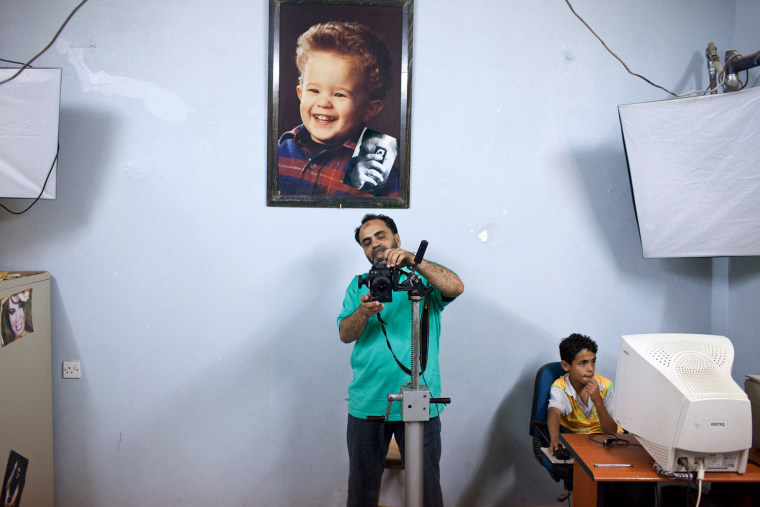
Most of eastern Libya suffers from rolling blackouts a few hours each day. A few businesses, like this Tobruk photo studio, have set up generators to continue working throughout the day. Rumors about ships with new shipments of gas for power plants are common and usually incorrect.